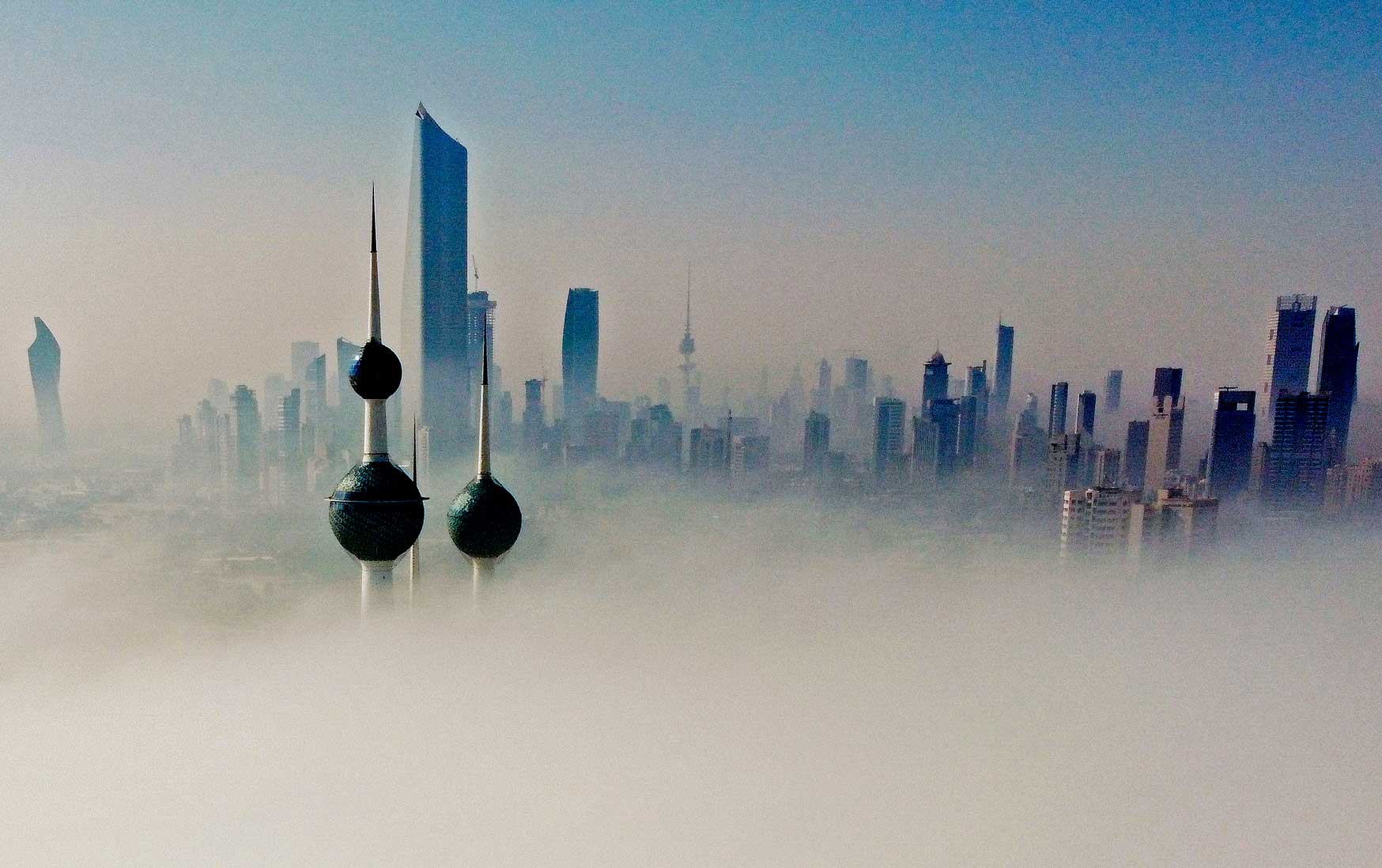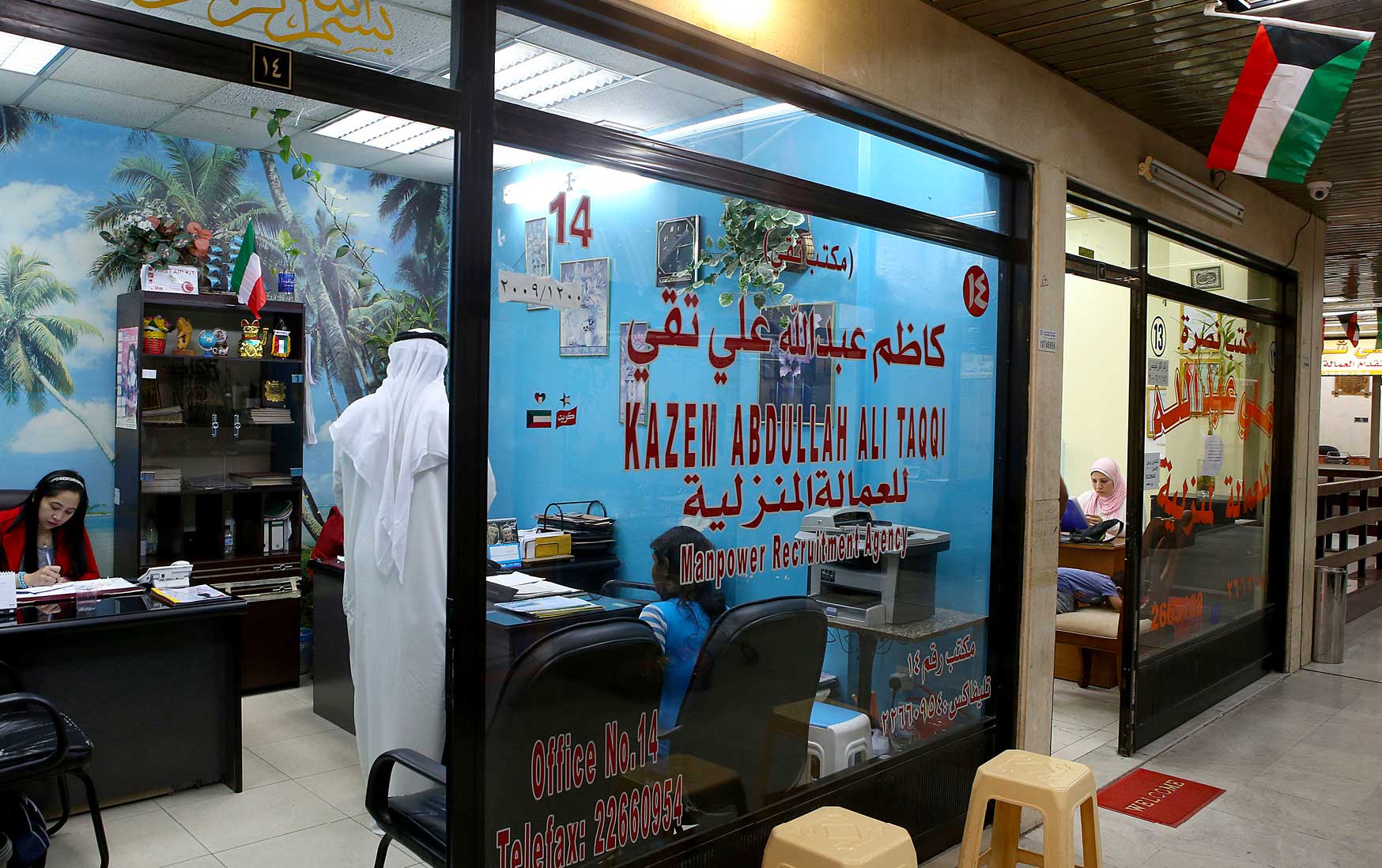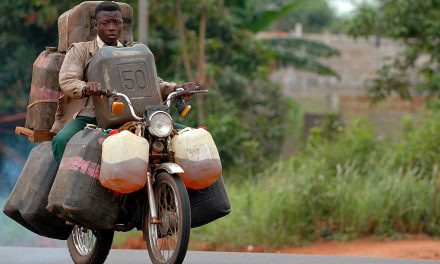Around 50% of Malawians are poor and close to a quarter are unemployed. This has made most people, particularly the young, desperate for money-making opportunities, a situation that traffickers and their agents take advantage of. They convince people to seek “greener pastures” abroad.
Malawi is a source of trafficked victims for the purposes of forced labour and sexual exploitation, especially to Middle East countries where they work as domestic workers in Dubai, Qatar, Oman, Kuwait, and Pakistan, among others. Malawians are also trafficked to neighbouring countries, such as South Africa, Mozambique, and Zambia, where they mostly work on farms.

Kuwait is one of several Middle Eastern destinations for trafficked Malawians, who are lured there by false promises of well-paid jobs. Photo: Yasser Al-Zayyat/AFP
In interviewing people for this article, Africa in Fact learnt that most of the victims were women and girls, enticed by the promise of high wages abroad. The victims also indicated that Malawians were sold to their new employers for as much as $7,000, with the employee receiving no wages for the first months because their salary went to the agent to cover the travel expenses incurred.
One victim, Malita (her real name withheld), admits she was offered the equivalent of $800 for a clerical or teaching job in Dubai. “The agent showed me pictures of Malawian women who were already there and doing well,” she recalled. “He said $800 was my initial salary but it would increase to more than $1,000 after three months.”
The agent (name withheld) processed her visa and made all her travel arrangements within a day, and Malita received her passport and air tickets at the airport. “All along I thought I was going to Dubai. I was so excited that I didn’t even check my itinerary before departure. Checking details for my next flight, however, I was upset to realise that I’m going to Kuwait. I asked the agent, but he told me there was no mistake.”
On the way, Malita met another Malawian woman going to Kuwait; they were both picked up by an agent on arrival whose first action was to confiscate their passports.
“My colleague’s phone was confiscated,” she said. “I had hidden mine earlier after I noticed some strange things. I was disappointed to be employed as a housemaid and not a clerk or teacher as promised. But I accepted it, in order to earn something to support my family back home.
“It was slavery… I woke up at 3am and went to bed at midnight daily. It’s hard for me to explain the kind of violence I faced, but all I can say is I was subjected to the most inhumane working conditions on earth.”

A Kuwaiti citizen waits for his housemaid at an office for domestic workers at a commercial complex in Kuwait City. Photo: Yasser Al-Zayyat/AFP
Malita said that when she told her employers she wanted to go home, they took her to a cemetery, where she was told Africans were buried. “They said I shouldn’t say anything to anyone about my Kuwait experience,” she says. “If I did, they would deal with me. I suspect these people were killed because they cheated on their HIV status. All people get tested in Malawi and in Kuwait on arrival. They want to confirm a negative result. They claim there is no HIV in their country.
“I was never paid for the services I provided to this household. I tried to communicate with my family, and when the employer gave me a chance to access WiFi, I explained everything in my own language and they managed to find a means of rescuing me. I was lucky, but not many are. I urge people not to fall into this trap. There are no well-paying jobs in the Middle East, it’s slavery.”
In 2016, several Malawian women working as housemaids were imprisoned in Kuwait after their employers sued them for escaping from their respective workplaces.
One of the victims, Chisomo (not her real name), who worked for three months without pay before escaping, told Africa in Fact that all maids from Africa are called Khadama (slaves). She said that after escaping, the women had to stay in prison for three days as punishment before being sent back to their workplace or a “foreigners’ refugee” camp.
“They never took any of us to court. Some Malawian women lived in prison for six weeks or more because the Malawi government then didn’t have money to immediately pay for their travel back home,” she said.

Malawi Police Service spokesperson Peter Kalaya.
Malawi Police Service (MPS) spokesperson Peter Kalaya says young people, especially women, are easily duped by traffickers. “We are doing our best and we want to reassure Malawians that we continue to arrest traffickers. We urge the public to alert us with any information.”
The national programme officer for the United Nations Office on Drugs and Crime, Maxwell Matewere, says an increase in human trafficking cases in Malawi and other African countries demonstrated the huge financial rewards for those engaged in organised crime.
“Corrupt government officials also aid and abet human trafficking, as demonstrated by recent arrests. Trafficking people is based on demand and supply. Currently, there is a demand to supply domestic workers to Arabic countries, and Malawi is not the only country that has been affected by this demand,” he notes.
As recently as October last year, a Malawi inter-ministerial delegation went to Oman to negotiate the repatriation of 376 women who had been recruited as domestic workers. Oman is holding the women, who have contracts with their employers, until they repay their employment agents or sponsor. According to Malawi’s Minister of Labour, Vera Kamtukule, the women need to pay a total of $114,000 to be released, which the government is yet to pay.
United States-based Malawian gender activist Pilirani Nyoni, meanwhile, has claimed that since the Malawi government delegation left Oman, the women have suffered sexual abuse, including rape, which has led to trauma and mental breakdowns, while some women were even poisoned.
Nyoni told Africa in Fact that most of the women trapped in Oman were from rural areas, particularly Mangochi district in Malawi’s eastern region. “Most of them are young girls, with the youngest 11 years old,” she said.
Malawi’s Ministry of Labour spokesperson Christina Mkutumula says the engagement with Oman is ongoing through its embassy in Kuwait, but told Africa in Fact that the ministry was unaware of the reported abuses since the delegation’s visit to Oman.
“As negotiations progress, the government keeps closely monitoring the situation,” she said. “Through ongoing dialogue, it has become easier to talk to the Omani authorities about appropriate remedial action. Should the Malawi government confirm worsening abuses, it will be easy to report to the government of Oman.”
The ministry occasionally receives complaints of abuse of Malawian migrant workers, Mkutumula said, but pointed out that the 2016 incident involving Malawian domestic workers in Kuwait had been resolved. “All the women were safely repatriated,” she said. “One achievement was the suspension of issuing visas for domestic workers going to Kuwait, which is still effective.” Mkutumula added that Malawi has now also asked Oman to do the same thing.
Mkutumula says that to protect prospective Malawian employees, the Malawi government plans to engage Middle East countries and negotiate for bilateral labour agreements (BLAs), which oblige one country to take responsibility for protecting the citizens of another working within its jurisdiction.
“Our goal, as a country, is to have our citizens working abroad given the same level of treatment that other governments give to their own citizens,” Mkutumula said.










